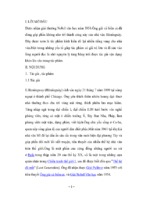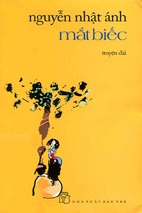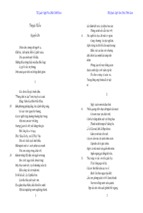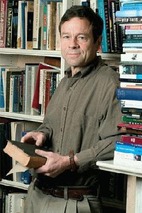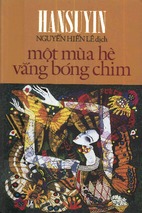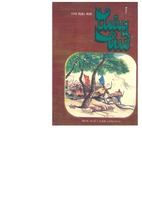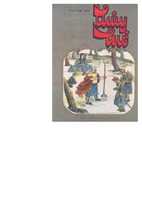CRIME AND PUNISHMENT
BY FYODOR DOSTOEVSKY
TRANSLATED BY CONSTANCE GARNETT
Prepared and Published by:
Ebd
E‐BooksDirectory.com
TRANSLATOR'S PREFACE
A few words about Dostoevsky himself may help the
English reader to understand his work.
Dostoevsky was the son of a doctor. His parents were
very hard‐working and deeply religious people, but so
poor that they lived with their five children in only two
rooms. The father and mother spent their evenings in
reading aloud to their children, generally from books of a
serious character.
Though always sickly and delicate Dostoevsky came
out third in the final examination of the Petersburg school
of Engineering. There he had already begun his first work,
"Poor Folk."
This story was published by the poet Nekrassov in his
review and was received with acclamations. The shy,
unknown youth found himself instantly something of a
celebrity. A brilliant and successful career seemed to open
before him, but those hopes were soon dashed. In 1849 he
was arrested.
Though neither by temperament nor conviction a
revolutionist, Dostoevsky was one of a little group of
young men who met together to read Fourier and
Proudhon. He was accused of "taking part in conversations
against the censorship, of reading a letter from Byelinsky
to Gogol, and of knowing of the intention to set up a
printing press." Under Nicholas I. (that "stern and just
man," as Maurice Baring calls him) this was enough, and
he was condemned to death. After eight months'
imprisonment he was with twenty‐one others taken out to
the Semyonovsky Square to be shot. Writing to his brother
Mihail, Dostoevsky says: "They snapped words over our
heads, and they made us put on the white shirts worn by
persons condemned to death. Thereupon we were bound
in threes to stakes, to suffer execution. Being the third in
the row, I concluded I had only a few minutes of life before
me. I thought of you and your dear ones and I contrived to
kiss Plestcheiev and Dourov, who were next to me, and to
bid them farewell. Suddenly the troops beat a tattoo, we
were unbound, brought back upon the scaffold, and
informed that his Majesty had spared us our lives." The
sentence was commuted to hard labour.
One of the prisoners, Grigoryev, went mad as soon as
he was untied, and never regained his sanity.
The intense suffering of this experience left a lasting
stamp on Dostoevsky's mind. Though his religious temper
led him in the end to accept every suffering with
resignation and to regard it as a blessing in his own case,
he constantly recurs to the subject in his writings. He
describes the awful agony of the condemned man and
insists on the cruelty of inflicting such torture. Then
followed four years of penal servitude, spent in the
company of common criminals in Siberia, where he began
the "Dead House," and some years of service in a
disciplinary battalion.
He had shown signs of some obscure nervous disease
before his arrest and this now developed into violent
attacks of epilepsy, from which he suffered for the rest of
his life. The fits occurred three or four times a year and
were more frequent in periods of great strain. In 1859 he
was allowed to return to Russia. He started a journal—
"Vremya," which was forbidden by the Censorship through
a misunderstanding. In 1864 he lost his first wife and his
brother Mihail. He was in terrible poverty, yet he took
upon himself the payment of his brother's debts. He
started another journal—"The Epoch," which within a few
months was also prohibited. He was weighed down by
debt, his brother's family was dependent on him, he was
forced to write at heart‐breaking speed, and is said never
to have corrected his work. The later years of his life were
much softened by the tenderness and devotion of his
second wife.
In June 1880 he made his famous speech at the
unveiling of the monument to Pushkin in Moscow and he
was received with extraordinary demonstrations of love
and honour.
A few months later Dostoevsky died. He was followed
to the grave by a vast multitude of mourners, who "gave
the hapless man the funeral of a king." He is still probably
the most widely read writer in Russia.
In the words of a Russian critic, who seeks to explain
the feeling inspired by Dostoevsky: "He was one of
ourselves, a man of our blood and our bone, but one who
has suffered and has seen so much more deeply than we
have his insight impresses us as wisdom... that wisdom of
the heart which we seek that we may learn from it how to
live. All his other gifts came to him from nature, this he
won for himself and through it he became great."
Ebd
E‐BooksDirectory.com
CRIME AND PUNISHMENT
PART I
CHAPTER I
On an exceptionally hot evening early in July a young
man came out of the garret in which he lodged in S. Place
and walked slowly, as though in hesitation, towards K.
bridge.
He had successfully avoided meeting his landlady on
the staircase. His garret was under the roof of a high, five‐
storied house and was more like a cupboard than a room.
The landlady who provided him with garret, dinners, and
attendance, lived on the floor below, and every time he
went out he was obliged to pass her kitchen, the door of
which invariably stood open. And each time he passed, the
young man had a sick, frightened feeling, which made him
scowl and feel ashamed. He was hopelessly in debt to his
landlady, and was afraid of meeting her.
This was not because he was cowardly and abject, quite
the contrary; but for some time past he had been in an
overstrained irritable condition, verging on hypochondria.
He had become so completely absorbed in himself, and
isolated from his fellows that he dreaded meeting, not only
his landlady, but anyone at all. He was crushed by poverty,
but the anxieties of his position had of late ceased to weigh
upon him. He had given up attending to matters of
practical importance; he had lost all desire to do so.
Nothing that any landlady could do had a real terror for
him. But to be stopped on the stairs, to be forced to listen
to her trivial, irrelevant gossip, to pestering demands for
payment, threats and complaints, and to rack his brains
for excuses, to prevaricate, to lie—no, rather than that, he
would creep down the stairs like a cat and slip out unseen.
This evening, however, on coming out into the street,
he became acutely aware of his fears.
"I want to attempt a thing like that and am frightened
by these trifles," he thought, with an odd smile. "Hm... yes,
all is in a man's hands and he lets it all slip from
cowardice, that's an axiom. It would be interesting to
know what it is men are most afraid of. Taking a new step,
uttering a new word is what they fear most.... But I am
talking too much. It's because I chatter that I do nothing.
Or perhaps it is that I chatter because I do nothing. I've
learned to chatter this last month, lying for days together
in my den thinking... of Jack the Giant‐killer. Why am I
going there now? Am I capable of that? Is that serious? It is
not serious at all. It's simply a fantasy to amuse myself; a
plaything! Yes, maybe it is a plaything."
The heat in the street was terrible: and the airlessness,
the bustle and the plaster, scaffolding, bricks, and dust all
about him, and that special Petersburg stench, so familiar
to all who are unable to get out of town in summer—all
worked painfully upon the young man's already
overwrought nerves. The insufferable stench from the pot‐
houses, which are particularly numerous in that part of
the town, and the drunken men whom he met continually,
although it was a working day, completed the revolting
misery of the picture. An expression of the profoundest
disgust gleamed for a moment in the young man's refined
face. He was, by the way, exceptionally handsome, above
the average in height, slim, well‐built, with beautiful dark
eyes and dark brown hair. Soon he sank into deep thought,
or more accurately speaking into a complete blankness of
mind; he walked along not observing what was about him
and not caring to observe it. From time to time, he would
mutter something, from the habit of talking to himself, to
which he had just confessed. At these moments he would
become conscious that his ideas were sometimes in a
tangle and that he was very weak; for two days he had
scarcely tasted food.
He was so badly dressed that even a man accustomed
to shabbiness would have been ashamed to be seen in the
street in such rags. In that quarter of the town, however,
scarcely any shortcoming in dress would have created
surprise. Owing to the proximity of the Hay Market, the
number of establishments of bad character, the
preponderance of the trading and working class
population crowded in these streets and alleys in the heart
of Petersburg, types so various were to be seen in the
streets that no figure, however queer, would have caused
surprise. But there was such accumulated bitterness and
contempt in the young man's heart, that, in spite of all the
fastidiousness of youth, he minded his rags least of all in
the street. It was a different matter when he met with
acquaintances or with former fellow students, whom,
indeed, he disliked meeting at any time. And yet when a
drunken man who, for some unknown reason, was being
taken somewhere in a huge waggon dragged by a heavy
dray horse, suddenly shouted at him as he drove past:
"Hey there, German hatter" bawling at the top of his voice
and pointing at him—the young man stopped suddenly
and clutched tremulously at his hat. It was a tall round hat
from Zimmerman's, but completely worn out, rusty with
age, all torn and bespattered, brimless and bent on one
side in a most unseemly fashion. Not shame, however, but
quite another feeling akin to terror had overtaken him.
"I knew it," he muttered in confusion, "I thought so!
That's the worst of all! Why, a stupid thing like this, the
most trivial detail might spoil the whole plan. Yes, my hat
is too noticeable.... It looks absurd and that makes it
noticeable.... With my rags I ought to wear a cap, any sort
of old pancake, but not this grotesque thing. Nobody wears
such a hat, it would be noticed a mile off, it would be
remembered.... What matters is that people would
remember it, and that would give them a clue. For this
business one should be as little conspicuous as possible....
Trifles, trifles are what matter! Why, it's just such trifles
that always ruin everything...."
He had not far to go; he knew indeed how many steps it
was from the gate of his lodging house: exactly seven
hundred and thirty. He had counted them once when he
had been lost in dreams. At the time he had put no faith in
those dreams and was only tantalising himself by their
hideous but daring recklessness. Now, a month later, he
had begun to look upon them differently, and, in spite of
the monologues in which he jeered at his own impotence
and indecision, he had involuntarily come to regard this
"hideous" dream as an exploit to be attempted, although
he still did not realise this himself. He was positively going
now for a "rehearsal" of his project, and at every step his
excitement grew more and more violent.
With a sinking heart and a nervous tremor, he went up
to a huge house which on one side looked on to the canal,
and on the other into the street. This house was let out in
tiny tenements and was inhabited by working people of all
kinds—tailors, locksmiths, cooks, Germans of sorts, girls
picking up a living as best they could, petty clerks, etc.
There was a continual coming and going through the two
gates and in the two courtyards of the house. Three or four
door‐keepers were employed on the building. The young
man was very glad to meet none of them, and at once
slipped unnoticed through the door on the right, and up
the staircase. It was a back staircase, dark and narrow, but
he was familiar with it already, and knew his way, and he
liked all these surroundings: in such darkness even the
most inquisitive eyes were not to be dreaded.
"If I am so scared now, what would it be if it somehow
came to pass that I were really going to do it?" he could
not help asking himself as he reached the fourth storey.
There his progress was barred by some porters who were
engaged in moving furniture out of a flat. He knew that the
flat had been occupied by a German clerk in the civil
service, and his family. This German was moving out then,
and so the fourth floor on this staircase would be
untenanted except by the old woman. "That's a good thing
anyway," he thought to himself, as he rang the bell of the
old woman's flat. The bell gave a faint tinkle as though it
were made of tin and not of copper. The little flats in such
houses always have bells that ring like that. He had
forgotten the note of that bell, and now its peculiar tinkle
seemed to remind him of something and to bring it clearly
before him.... He started, his nerves were terribly
overstrained by now. In a little while, the door was opened
a tiny crack: the old woman eyed her visitor with evident
distrust through the crack, and nothing could be seen but
her little eyes, glittering in the darkness. But, seeing a
number of people on the landing, she grew bolder, and
opened the door wide. The young man stepped into the
dark entry, which was partitioned off from the tiny
kitchen. The old woman stood facing him in silence and
looking inquiringly at him. She was a diminutive, withered
up old woman of sixty, with sharp malignant eyes and a
sharp little nose. Her colourless, somewhat grizzled hair
was thickly smeared with oil, and she wore no kerchief
over it. Round her thin long neck, which looked like a
hen's leg, was knotted some sort of flannel rag, and, in
spite of the heat, there hung flapping on her shoulders, a
mangy fur cape, yellow with age. The old woman coughed
and groaned at every instant. The young man must have
looked at her with a rather peculiar expression, for a
gleam of mistrust came into her eyes again.
"Raskolnikov, a student, I came here a month ago," the
young man made haste to mutter, with a half bow,
remembering that he ought to be more polite.
"I remember, my good sir, I remember quite well your
coming here," the old woman said distinctly, still keeping
her inquiring eyes on his face.
"And here... I am again on the same errand,"
Raskolnikov continued, a little disconcerted and surprised
at the old woman's mistrust. "Perhaps she is always like
that though, only I did not notice it the other time," he
thought with an uneasy feeling.
The old woman paused, as though hesitating; then
stepped on one side, and pointing to the door of the room,
she said, letting her visitor pass in front of her:
"Step in, my good sir."
The little room into which the young man walked, with
yellow paper on the walls, geraniums and muslin curtains
in the windows, was brightly lighted up at that moment by
the setting sun.
"So the sun will shine like this then too!" flashed as it
were by chance through Raskolnikov's mind, and with a
rapid glance he scanned everything in the room, trying as
far as possible to notice and remember its arrangement.
But there was nothing special in the room. The furniture,
all very old and of yellow wood, consisted of a sofa with a
huge bent wooden back, an oval table in front of the sofa, a
dressing‐table with a looking‐glass fixed on it between the
windows, chairs along the walls and two or three half‐
penny prints in yellow frames, representing German
damsels with birds in their hands—that was all. In the
corner a light was burning before a small ikon. Everything
was very clean; the floor and the furniture were brightly
polished; everything shone.
"Lizaveta's work," thought the young man. There was
not a speck of dust to be seen in the whole flat.
"It's in the houses of spiteful old widows that one finds
such cleanliness," Raskolnikov thought again, and he stole
a curious glance at the cotton curtain over the door
leading into another tiny room, in which stood the old
woman's bed and chest of drawers and into which he had
never looked before. These two rooms made up the whole
flat.
"What do you want?" the old woman said severely,
coming into the room and, as before, standing in front of
him so as to look him straight in the face.
"I've brought something to pawn here," and he drew
out of his pocket an old‐fashioned flat silver watch, on the
back of which was engraved a globe; the chain was of
steel.
"But the time is up for your last pledge. The month was
up the day before yesterday."
"I will bring you the interest for another month; wait a
little."
"But that's for me to do as I please, my good sir, to wait
or to sell your pledge at once."
"How much will you give me for the watch, Alyona
Ivanovna?"
"You come with such trifles, my good sir, it's scarcely
worth anything. I gave you two roubles last time for your
ring and one could buy it quite new at a jeweler's for a
rouble and a half."
"Give me four roubles for it, I shall redeem it, it was my
father's. I shall be getting some money soon."
"A rouble and a half, and interest in advance, if you
like!"
"A rouble and a half!" cried the young man.
"Please yourself"—and the old woman handed him
back the watch. The young man took it, and was so angry
that he was on the point of going away; but checked
himself at once, remembering that there was nowhere else
he could go, and that he had had another object also in
coming.
"Hand it over," he said roughly.
The old woman fumbled in her pocket for her keys, and
disappeared behind the curtain into the other room. The
young man, left standing alone in the middle of the room,
listened inquisitively, thinking. He could hear her
unlocking the chest of drawers.
"It must be the top drawer," he reflected. "So she
carries the keys in a pocket on the right. All in one bunch
on a steel ring.... And there's one key there, three times as
big as all the others, with deep notches; that can't be the
key of the chest of drawers... then there must be some
other chest or strong‐box... that's worth knowing. Strong‐
boxes always have keys like that... but how degrading it all
is."
The old woman came back.
"Here, sir: as we say ten copecks the rouble a month, so
I must take fifteen copecks from a rouble and a half for the
month in advance. But for the two roubles I lent you
before, you owe me now twenty copecks on the same
reckoning in advance. That makes thirty‐five copecks
altogether. So I must give you a rouble and fifteen copecks
for the watch. Here it is."
"What! only a rouble and fifteen copecks now!"
"Just so."
The young man did not dispute it and took the money.
He looked at the old woman, and was in no hurry to get
away, as though there was still something he wanted to
say or to do, but he did not himself quite know what.
"I may be bringing you something else in a day or two,
Alyona Ivanovna—a valuable thing—silver—a cigarette‐
box, as soon as I get it back from a friend..." he broke off in
confusion.
"Well, we will talk about it then, sir."
"Good‐bye—are you always at home alone, your sister
is not here with you?" He asked her as casually as possible
as he went out into the passage.
"What business is she of yours, my good sir?"
"Oh, nothing particular, I simply asked. You are too
quick.... Good‐day, Alyona Ivanovna."
Raskolnikov went out in complete confusion. This
confusion became more and more intense. As he went
down the stairs, he even stopped short, two or three times,
as though suddenly struck by some thought. When he was
in the street he cried out, "Oh, God, how loathsome it all is!
and can I, can I possibly.... No, it's nonsense, it's rubbish!"
he added resolutely. "And how could such an atrocious
thing come into my head? What filthy things my heart is
capable of. Yes, filthy above all, disgusting, loathsome,
loathsome!—and for a whole month I've been...." But no
words, no exclamations, could express his agitation. The
feeling of intense repulsion, which had begun to oppress
and torture his heart while he was on his way to the old
woman, had by now reached such a pitch and had taken
such a definite form that he did not know what to do with
himself to escape from his wretchedness. He walked along
the pavement like a drunken man, regardless of the
passers‐by, and jostling against them, and only came to his
senses when he was in the next street. Looking round, he
noticed that he was standing close to a tavern which was
entered by steps leading from the pavement to the
basement. At that instant two drunken men came out at
the door, and abusing and supporting one another, they
mounted the steps. Without stopping to think,
Raskolnikov went down the steps at once. Till that
moment he had never been into a tavern, but now he felt
giddy and was tormented by a burning thirst. He longed
for a drink of cold beer, and attributed his sudden
weakness to the want of food. He sat down at a sticky little
table in a dark and dirty corner; ordered some beer, and
eagerly drank off the first glassful. At once he felt easier;
and his thoughts became clear.
"All that's nonsense," he said hopefully, "and there is
nothing in it all to worry about! It's simply physical
derangement. Just a glass of beer, a piece of dry bread—
and in one moment the brain is stronger, the mind is
clearer and the will is firm! Phew, how utterly petty it all
is!"
But in spite of this scornful reflection, he was by now
looking cheerful as though he were suddenly set free from
a terrible burden: and he gazed round in a friendly way at
the people in the room. But even at that moment he had a
dim foreboding that this happier frame of mind was also
not normal.
There were few people at the time in the tavern.
Besides the two drunken men he had met on the steps, a
group consisting of about five men and a girl with a
concertina had gone out at the same time. Their departure
left the room quiet and rather empty. The persons still in
the tavern were a man who appeared to be an artisan,
drunk, but not extremely so, sitting before a pot of beer,
and his companion, a huge, stout man with a grey beard, in
a short full‐skirted coat. He was very drunk: and had
dropped asleep on the bench; every now and then, he
began as though in his sleep, cracking his fingers, with his
arms wide apart and the upper part of his body bounding
about on the bench, while he hummed some meaningless
refrain, trying to recall some such lines as these:
"His wife a year he fondly loved His wife a—a year he—
fondly loved."
Or suddenly waking up again:
"Walking along the crowded row He met the one he
used to know."
But no one shared his enjoyment: his silent companion
looked with positive hostility and mistrust at all these
manifestations. There was another man in the room who
looked somewhat like a retired government clerk. He was
sitting apart, now and then sipping from his pot and
looking round at the company. He, too, appeared to be in
some agitation.
CHAPTER II
Raskolnikov was not used to crowds, and, as we said
before, he avoided society of every sort, more especially of
late. But now all at once he felt a desire to be with other
people. Something new seemed to be taking place within
him, and with it he felt a sort of thirst for company. He was
so weary after a whole month of concentrated
wretchedness and gloomy excitement that he longed to
rest, if only for a moment, in some other world, whatever
it might be; and, in spite of the filthiness of the
surroundings, he was glad now to stay in the tavern.
The master of the establishment was in another room,
but he frequently came down some steps into the main
room, his jaunty, tarred boots with red turn‐over tops
coming into view each time before the rest of his person.
He wore a full coat and a horribly greasy black satin
waistcoat, with no cravat, and his whole face seemed
smeared with oil like an iron lock. At the counter stood a
boy of about fourteen, and there was another boy
somewhat younger who handed whatever was wanted. On
the counter lay some sliced cucumber, some pieces of
dried black bread, and some fish, chopped up small, all
smelling very bad. It was insufferably close, and so heavy
with the fumes of spirits that five minutes in such an
atmosphere might well make a man drunk.
There are chance meetings with strangers that interest
us from the first moment, before a word is spoken. Such
was the impression made on Raskolnikov by the person
sitting a little distance from him, who looked like a retired
clerk. The young man often recalled this impression
afterwards, and even ascribed it to presentiment. He
looked repeatedly at the clerk, partly no doubt because the
latter was staring persistently at him, obviously anxious to
enter into conversation. At the other persons in the room,
including the tavern‐keeper, the clerk looked as though he
were used to their company, and weary of it, showing a
shade of condescending contempt for them as persons of
station and culture inferior to his own, with whom it
would be useless for him to converse. He was a man over
fifty, bald and grizzled, of medium height, and stoutly built.
His face, bloated from continual drinking, was of a yellow,
even greenish, tinge, with swollen eyelids out of which
keen reddish eyes gleamed like little chinks. But there was
something very strange in him; there was a light in his
eyes as though of intense feeling—perhaps there were
even thought and intelligence, but at the same time there
was a gleam of something like madness. He was wearing
an old and hopelessly ragged black dress coat, with all its
buttons missing except one, and that one he had buttoned,
evidently clinging to this last trace of respectability. A
crumpled shirt front, covered with spots and stains,
protruded from his canvas waistcoat. Like a clerk, he wore
no beard, nor moustache, but had been so long unshaven
that his chin looked like a stiff greyish brush. And there
was something respectable and like an official about his
manner too. But he was restless; he ruffled up his hair and
from time to time let his head drop into his hands
dejectedly resting his ragged elbows on the stained and
sticky table. At last he looked straight at Raskolnikov, and
said loudly and resolutely:
"May I venture, honoured sir, to engage you in polite
conversation? Forasmuch as, though your exterior would
not command respect, my experience admonishes me that
you are a man of education and not accustomed to
drinking. I have always respected education when in
conjunction with genuine sentiments, and I am besides a
titular counsellor in rank. Marmeladov—such is my name;
titular counsellor. I make bold to inquire—have you been
in the service?"
"No, I am studying," answered the young man,
somewhat surprised at the grandiloquent style of the
speaker and also at being so directly addressed. In spite of
the momentary desire he had just been feeling for
company of any sort, on being actually spoken to he felt
immediately his habitual irritable and uneasy aversion for
any stranger who approached or attempted to approach
him.
"A student then, or formerly a student," cried the clerk.
"Just what I thought! I'm a man of experience, immense
experience, sir," and he tapped his forehead with his
fingers in self‐approval. "You've been a student or have
attended some learned institution!... But allow me...." He
got up, staggered, took up his jug and glass, and sat down
beside the young man, facing him a little sideways. He was
drunk, but spoke fluently and boldly, only occasionally
losing the thread of his sentences and drawling his words.
He pounced upon Raskolnikov as greedily as though he
too had not spoken to a soul for a month.
"Honoured sir," he began almost with solemnity,
"poverty is not a vice, that's a true saying. Yet I know too
that drunkenness is not a virtue, and that that's even truer.
But beggary, honoured sir, beggary is a vice. In poverty
you may still retain your innate nobility of soul, but in
beggary—never—no one. For beggary a man is not chased
out of human society with a stick, he is swept out with a
broom, so as to make it as humiliating as possible; and
quite right, too, forasmuch as in beggary I am ready to be
the first to humiliate myself. Hence the pot‐house!
Honoured sir, a month ago Mr. Lebeziatnikov gave my wife
a beating, and my wife is a very different matter from me!
Do you understand? Allow me to ask you another question
out of simple curiosity: have you ever spent a night on a
hay barge, on the Neva?"
"No, I have not happened to," answered Raskolnikov.
"What do you mean?"
"Well, I've just come from one and it's the fifth night
I've slept so...." He filled his glass, emptied it and paused.
Bits of hay were in fact clinging to his clothes and sticking
to his hair. It seemed quite probable that he had not
undressed or washed for the last five days. His hands,
particularly, were filthy. They were fat and red, with black
nails.
His conversation seemed to excite a general though
languid interest. The boys at the counter fell to sniggering.
The innkeeper came down from the upper room,
apparently on purpose to listen to the "funny fellow" and
sat down at a little distance, yawning lazily, but with
dignity. Evidently Marmeladov was a familiar figure here,
and he had most likely acquired his weakness for high‐
flown speeches from the habit of frequently entering into
conversation with strangers of all sorts in the tavern. This
habit develops into a necessity in some drunkards, and
especially in those who are looked after sharply and kept
in order at home. Hence in the company of other drinkers
they try to justify themselves and even if possible obtain
consideration.
"Funny fellow!" pronounced the innkeeper. "And why
don't you work, why aren't you at your duty, if you are in
the service?"
"Why am I not at my duty, honoured sir," Marmeladov
went on, addressing himself exclusively to Raskolnikov, as
though it had been he who put that question to him. "Why
am I not at my duty? Does not my heart ache to think what
a useless worm I am? A month ago when Mr.
Lebeziatnikov beat my wife with his own hands, and I lay
drunk, didn't I suffer? Excuse me, young man, has it ever
happened to you... hm... well, to petition hopelessly for a
loan?"
"Yes, it has. But what do you mean by hopelessly?"
"Hopelessly in the fullest sense, when you know
beforehand that you will get nothing by it. You know, for
instance, beforehand with positive certainty that this man,
this most reputable and exemplary citizen, will on no
consideration give you money; and indeed I ask you why
should he? For he knows of course that I shan't pay it back.
From compassion? But Mr. Lebeziatnikov who keeps up
with modern ideas explained the other day that
compassion is forbidden nowadays by science itself, and
that that's what is done now in England, where there is
political economy. Why, I ask you, should he give it to me?
- Xem thêm -



